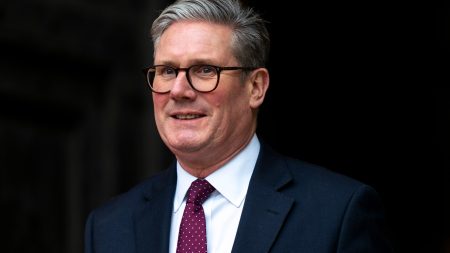Rachel Reeves, the UK’s Shadow Chancellor, has signaled a shift in Labour’s economic policy, prioritizing growth over other considerations, including Net Zero targets. This stance, which emphasizes the need for increased infrastructure development across various sectors, offers a refreshing departure from previous approaches where economic growth often took a backseat to other political agendas. Reeves acknowledges the longstanding tendency to prioritize alternative concerns over economic expansion and explicitly states that this must change. Her focus on facilitating construction of airports, housing, businesses, power plants, and reservoirs is a welcome signal for those who believe that sustained economic growth is crucial for the nation’s prosperity. However, this pro-growth agenda is likely to face internal resistance from certain factions within the Labour Party, potentially sparking a significant internal conflict. This potential for intra-party discord underscores the challenges Reeves and Labour leader Keir Starmer may face in implementing their vision.
Reeves’ emphasis on growth is not merely a matter of ideological preference but a response to pressing economic realities. The UK’s recent borrowing figures, significantly exceeding forecasts, highlight the urgent need for stronger economic growth. This substantial borrowing is attributed, at least in part, to Labour’s increased spending on welfare and the public sector. Without significant economic expansion, Reeves will likely face the difficult choice of implementing spending cuts or increasing taxes, both of which carry the risk of further economic downturn, potentially leading to a “doom loop” of declining prosperity. The challenge for Reeves and Starmer lies in persuading sceptical members of their party, many of whom are resistant to development projects, of the critical need for growth to address the nation’s economic vulnerabilities.
The Chancellor’s growth-oriented approach is further complicated by differing viewpoints within the government. While Reeves stresses the primacy of economic growth, Business Secretary Jonathan Reynolds advocates for closer alignment with EU regulations. This stance appears contradictory to the pro-growth agenda, especially given the EU’s current economic struggles and the potential for a lucrative trade deal with the burgeoning US economy. This divergence in approach suggests a fundamental disagreement on the best path forward for the UK economy and highlights the influence of pro-EU sentiment within certain segments of the political landscape. The question remains whether prioritizing closer ties with the EU truly serves Britain’s best interests, particularly in light of potential alternative trade opportunities.
The emphasis on growth is seen as essential for addressing the nation’s economic challenges and building a more prosperous future. The internal divisions within Labour regarding this approach highlight the political tightrope Reeves and Starmer must walk. Their success hinges on their ability to navigate these internal disagreements and convince their party of the critical need for a growth-focused strategy. The conflicting views on aligning with EU regulations further complicate the path to economic recovery, raising questions about the most effective strategies for achieving sustained growth.
The case of Axel Rudakubana, an 18-year-old convicted of murder, brings into sharp focus a legal anomaly within the UK’s sentencing guidelines. While tried as an adult, Rudakubana will be sentenced as a 17-year-old, precluding the possibility of a whole-life term. This distinction, based solely on age at the time of the crime, raises concerns about the adequacy of the current legal framework in dealing with particularly heinous crimes. The article argues for a change in legislation to allow for whole-life sentences for individuals on the cusp of adulthood who commit exceptionally brutal crimes, regardless of their age at the time of the offense. The Rudakubana case serves as a stark example of the need for a reassessment of sentencing guidelines to ensure that punishments reflect the severity of the crime, even in cases involving individuals nearing the age of majority.
The confluence of economic challenges, internal political divisions, and ongoing debates over legal frameworks paints a complex picture of the UK’s current landscape. The call for prioritizing economic growth represents a significant shift in economic policy, but its successful implementation faces hurdles both within the ruling party and in the broader political arena. The tension between prioritizing growth and aligning with EU regulations underscores the complexities of navigating international relations while pursuing domestic economic objectives. Furthermore, the Rudakubana case highlights the need for ongoing review and potential reform of legal structures to ensure they adequately address the complexities of modern criminal justice.











